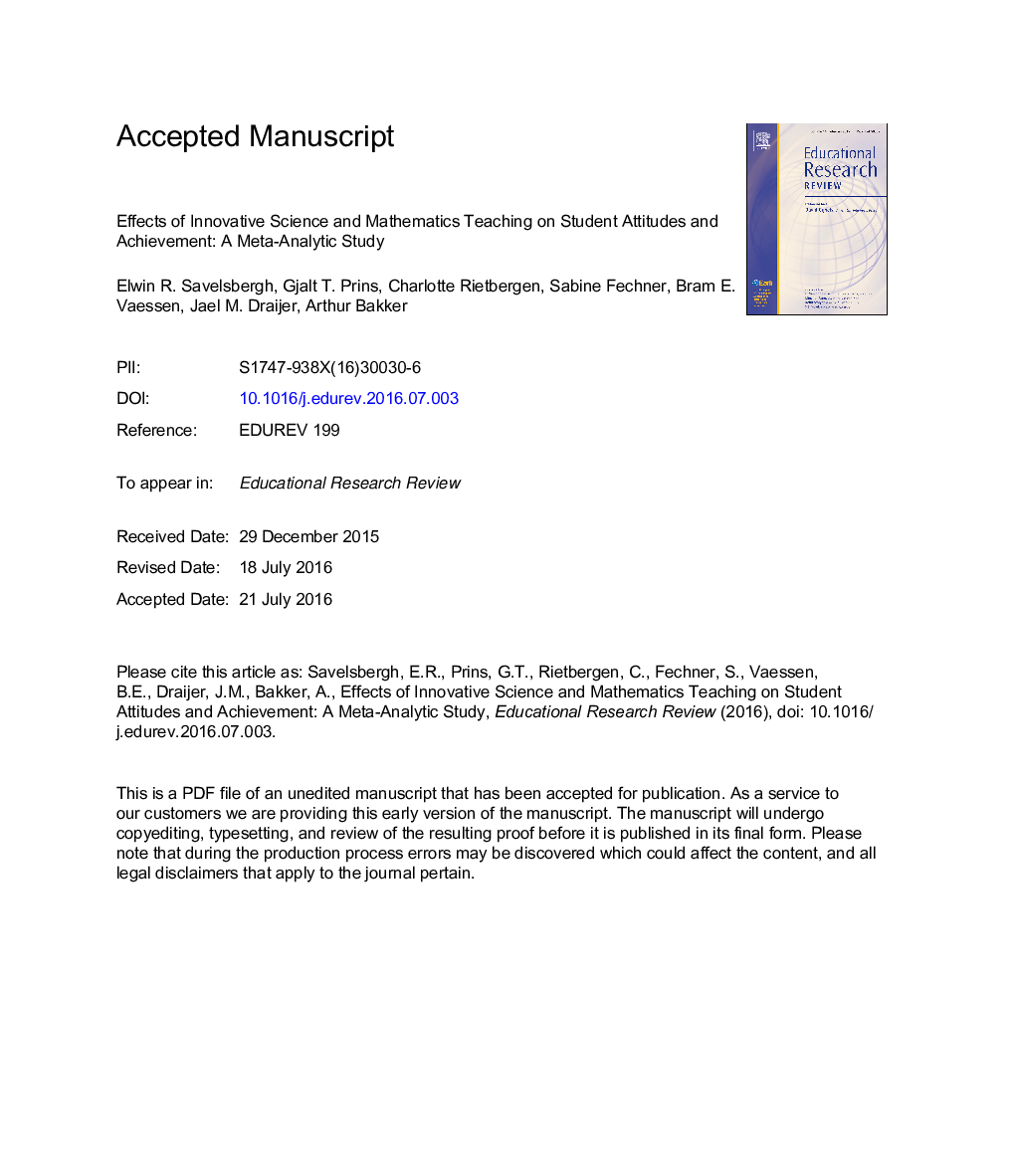| Article ID | Journal | Published Year | Pages | File Type |
|---|---|---|---|---|
| 6840979 | Educational Research Review | 2016 | 40 Pages |
Abstract
Many teaching approaches have been tried to improve student attitudes and achievement in science and mathematics education. Achievement effects have been synthesized, but a systematic overview of attitude effects is missing. This study provides a meta analytic review based on 56 publications (1988-2014), reporting 65 independent experiments that investigated the effects of teaching approaches on student attitudes in primary or secondary science or mathematics education. Five types of teaching approaches were distinguished: inquiry-based, context-based, computer-based, collaborative learning strategies, and extra-curricular activities. Since many different attitude outcomes were distinguished and attitudes were assessed at different levels of granularity, we did separate analyses for specific and more global outcomes. Outcomes were not significantly different for different educational approaches. When taking all interventions together, significant effects were found for General Attitude (n = 60; d = 0.35), General Interest (n = 20; d = 0.22), and Career Interest in Science (n = 4; d = 0.40). The effects were significantly weaker for studies with older students. Analysis of achievement outcomes yielded a significant and large overall effect (n = 40; d = 0.78), again with no significant differences between teaching approaches. Although the positive effects might be partly due to novelty, the current findings do counter skepticism about the learning outcomes of interest-oriented teaching approaches.
Keywords
Related Topics
Social Sciences and Humanities
Psychology
Developmental and Educational Psychology
Authors
Elwin R. Savelsbergh, Gjalt T. Prins, Charlotte Rietbergen, Sabine Fechner, Bram E. Vaessen, Jael M. Draijer, Arthur Bakker,
